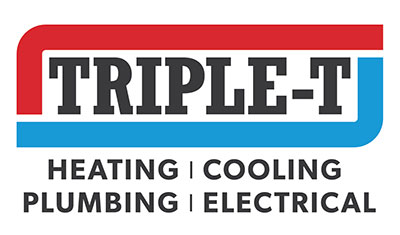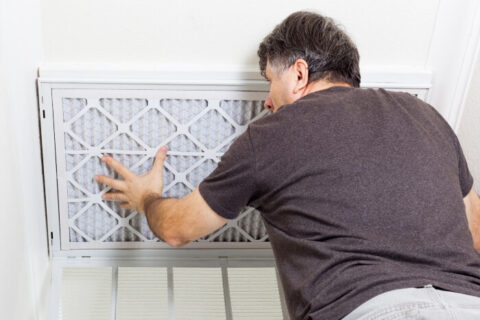What is a Ductless Air Conditioner?
Does your home or business lack ductwork for central air conditioning? Do you find it difficult to keep a particular room comfortable? Are you trying to figure out how to extend the ductwork to a new home addition? The solution to these dilemmas is to install a ductless air conditioner. Learn more about this unique HVAC system to help you decide if it’s right for your Utah home or business.
How Do Ductless Air Conditioners Work?
You are probably more familiar with central heating and cooling systems than ductless mini-splits. While some people refer to them as air conditioners, ductless systems are actually heat pumps. Whether ducted or ductless, heat pumps run on electricity and use refrigerant to extract heat and humidity from the indoor air. Unlike AC units, heat pumps can run in reverse, providing home heating in the winter.
The biggest difference between ductless and central HVAC systems is that ductless units don’t require ductwork. Instead, a wall-mounted air handler is installed in the room you want to heat and cool. You can turn a mini-split system into a multi-split system by connecting several indoor air handlers to a single outdoor condensing unit. This makes it possible to cool an entire house with a ductless heat pump.
Pros and Cons of Ductless Air Conditioning
Ductless HVAC systems have several benefits and drawbacks you should know before purchasing one for your home or business.
Pros
Here’s why ductless AC units are becoming increasingly popular in the US:
- Ease of installation: Installing ductwork in an existing building can disrupt your daily activities for weeks. On the other hand, installing a ductless mini-split requires no costly construction work. The crew simply sets up a condensing unit outside, mounts an air handler to the wall, and drills a small hole to run pipes and cables between the two units.
- No inefficient air ducts: Ductwork is inherently inefficient. Air leaks and poor insulation force the HVAC system to work harder as it heats and cools your home. Even under ideal circumstances, conditioned air loses some of its heat or coolness while traveling from the central HVAC equipment to the supply registers throughout the building. Ductless systems eliminate air ducts and their inefficiencies, lowering your heating and cooling costs in the process.
- Improved air quality: Ductwork isn’t just inefficient—it’s also dirty. Routine duct cleaning is the only way to remove dust, grime, cobwebs, and other debris. Installing a ductless heat pump is an easy way to avoid this hassle.
- Preserved window access: Some home and business owners resort to window air conditioners if the building doesn’t have ductwork. These noisy, bulky units hamper the view, make your window inaccessible, and create a security concern. Wall-mounted ductless mini-splits let you reclaim your windows while still providing room-by-room cooling, not to mention the added benefit of wintertime heating.
- Zoned heating and cooling: Zoning is when you set the temperature in one room at a time instead of controlling the whole house with a single thermostat. This is the ideal way to keep everyone comfortable at all times. Ductless air conditioners optimize indoor temperature control with independently operating air handlers in as many rooms as you want.
Cons
While the benefits of ductless air conditioning are undeniable, here are a few drawbacks to keep in mind:
- Higher upfront cost: The total cost of a mini-split system depends on the layout and configuration you choose. Not accounting for ductwork, you can expect to pay about 30 percent more for a ductless mini-split than a central air conditioner. Of course, if your home or business doesn’t already have ductwork, the price to install a central HVAC system can easily double.
- Visible wall-mounted air handlers: While the indoor component of a ductless system is designed to be as sleek and inconspicuous as possible, some homeowners don’t like the way wall-mounted air handlers look. The good news is that you have many design options and installation locations to choose from, including narrow-vent styles and ceiling- or floor-mounted units.
Is Ductless Heating and Cooling Right for Me?
You stand to benefit the most from installing a ductless mini-split if any of these circumstances apply to your home or business:
- No ductwork: Many older buildings have radiators or baseboard heaters and no central air conditioning. In this case, installing ductwork may be cost-prohibitive. Save money and avoid blocking your windows by installing a ductless heat pump.
- Rooms that are difficult to heat or cool: It’s common for the basement to be uncomfortably cold compared to the rest of the house. South-facing rooms are also warmer than north-facing areas. You can combat these temperature disparities with strategically placed ductless mini-splits.
- Different temperature preferences: You may want to keep the nursery nice and warm for your newborn, but you don’t want to overheat the rest of your house. The zoning capabilities of a ductless AC unit provide a perfect solution.
- Recent addition: You may finally have more room to spread out, but extending the ductwork to a home addition can be complicated, expensive, or downright impossible. You might even need to replace the HVAC system to avoid overworking it. Skip the headache and install a ductless mini-split in your recently added room.
Contact Triple T for HVAC Services
Ready to upgrade to a ductless mini-split? The HVAC experts at Triple T Heating, Cooling & Plumbing can help! We install top-quality ductless heat pumps with affordable, upfront prices and flexible financing options to fund your investment. Our team has exceeded customer expectations for nearly 50 years, so you can trust us to help you save money, boost efficiency, and improve comfort with ductless air conditioning.
For more information about ductless HVAC systems or to schedule an installation estimate, please call us at 801-798-7711 if you live in Utah County or 435-275-4011 if you’re a Washington County resident. You can also contact us online with any questions you have.


